Arts & Entertainment
Pointing the way
Scholarships help LGBT students achieve career and education dreams
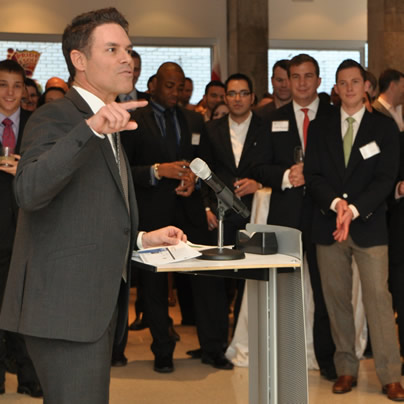
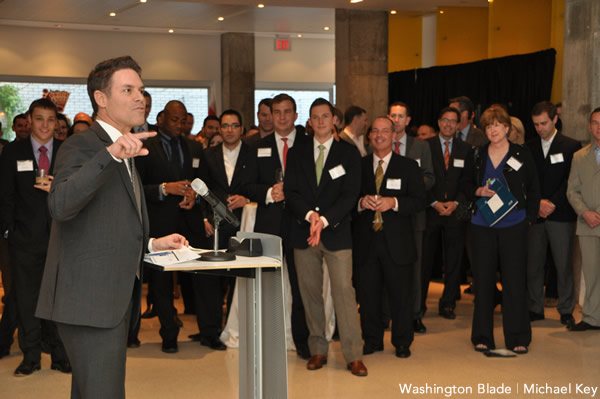
Jorge Valencia, director of the Point Foundation, at last year's event. (Blade file photo by Michael Key)
The Point Foundation, with offices in New York and Los Angeles, boasts doctors, lawyers, filmmakers and even the nation’s youngest openly gay mayor as alumni of its scholarship program, which has connected gay college students with millions in financial support and a robust professional network for more than a decade.
Yet organizers say there remain countless LGBT students whose educations are cut short by limited funds and unsupportive families. And even as LGBT youth find more mainstream acceptance, interest in the innovative scholarship program has not dissipated.
In fact it’s growing, say organizers who will host a May 3 fundraiser meant to jumpstart donations and boost financial support for the expanding pool of scholars. The event will take place from 6 to 8 p.m. at the Equality Center (1640 Rhode Island Ave. NW). Tickets are $75.
It will feature remarks from founders Bruce Lindstrom and Carl Strickland, as well as success stories shared by some of the Foundation’s growing crop of alumni.
Organizers are finalizing this year’s recipients from a field of some 2,000 applicants, up about 33 percent from last year. Scholars will be announced in June.
“We’re getting a lot more applications from geographically diverse parts of the country, also people of color and women,” says Jorge Valencia, Point’s executive director and CEO. “We’re very happy with that, a lot of that has to do with our outreach efforts.”
The Washington Cornerstone Society event — named for large gift donors — will be one of eight the foundation plans this year to help support the roughly 75 scholars it sponsors annually.
The amount of each scholarship fluctuates based on the number of scholars, but officials say the funds help cover everything from tuition to living expenses for undergraduates and graduate students at institutions across the country. The competitive qualification process involves a 10-part application and culminates with phone and in-person interviews.
Each year, Valencia said, the pile of applications gets thicker.
“That’s why these Cornerstone events are so important,” he says. “We need to be able to raise more money to support these scholars.”
The scholarship program’s continued success is bittersweet, however. Valencia says it’s evidence that there remains a lot of work to be done in boosting acceptance of LGBT youth.
“I hope one day there isn’t a need for organizations that serve underserved communities,” says Valencia, explaining that though scholarships are not limited to scholars who face rejection from their families, those students still comprise many recipients. “The opposition is fighting even harder to make these young people all over the country and all over the world really feel less than equal, so the need is just as high as ever before.”
For Ashland Johnson, rejection came not from her family, but from her employers.
“I worked at Morehouse School of Medicine, my boss found out I was gay and I was fired,” says Johnson, who channeled the messy experience — which eventually involved the American Civil Liberties Union — into a desire to practice LGBT civil rights law.
Johnson had studied English and planned on being a professor before the 2006 incident but soon found herself looking at law schools — and looking for money. In Point Foundation, she says she found both financial support and a commitment to developing fully rounded students through leadership training.
“I saw they were really more than a paycheck,” says Johnson, who graduated in 2011 and now works as policy counsel for the National Center for Lesbian Rights, in Washington.
Scholars are required to complete community service projects benefiting the LGBT community; in exchange, Valencia says they receive support through the duration of their academic career, training opportunities and mentors in their field.
The latter can be invaluable as young professionals navigate complex fields, says Daniel O’Neill, a 2011-2012 scholarship recipient and aspiring primary care physician. Through his program mentor, O’Neill says he has expanded both his knowledge of HIV treatment and his vision of where medicine can take him. He plans to spend time working in San Francisco this year to learn even more about medical issues largely impacting gay and lesbian patients.
“They’ve accelerated my ability to pay it forward and help the LGBT community,” O’Neill says of the foundation. “They’ve galvanized the passion of mine to affirm that I’m part of this large LGBT community.”
Scholars also gain access to the foundation’s large network of prestigious alumni, including one who epitomizes Point’s growing influence.
Alex Morse, mayor of Holyoke, Mass., is the nation’s youngest openly gay mayor and a Point Foundation scholar.
“The Point Foundation assisted me financially as a student at Brown University,” he said in an email. “But more importantly, it introduced me to an intergenerational network of successful members of the [LGBT] community from all across the country. It helped give me the confidence I needed to achieve my goals and set me on a strong path into the future.”
Theater
José Zayas brings ‘The House of Bernarda Alba’ to GALA Hispanic Theatre
Gay Spanish playwright Federico García Lorca wrote masterpiece before 1936 execution

‘The House of Bernarda Alba’
Through March 1
GALA Hispanic Theatre
3333 14th St., N.W.
$27-$52
Galatheatre.org
In Federico García Lorca’s “The House of Bernarda Alba,” now at GALA Hispanic Theatre in Columbia Heights, an impossibly oppressive domestic situation serves, in short, as an allegory for the repressive, patriarchal, and fascist atmosphere of 1930s Spain
The gay playwright completed his final and arguably best work in 1936, just months before he was executed by a right-wing firing squad. “Bernarda Alba” is set in the same year, sometime during a hot summer in rural Andalusia, the heart of “España profunda” (the deep Spain), where traditions are deeply rooted and mores seldom challenged.
At Bernarda’s house, the atmosphere, already stifling, is about to get worse.
On the day of her second husband’s funeral, Bernarda Alba (superbly played by Luz Nicolás), a sixtyish woman accustomed to calling the shots, gathers her five unmarried daughters (ages ranging from 20 to 39) and matter-of-factly explain what’s to happen next.
She says, “Through the eight years of mourning not a breeze shall enter this house. Consider the doors and windows as sealed with bricks. That’s how it was in my father’s house and my grandfather’s. Meanwhile, you can embroider your trousseaux.”
It’s not an altogether sunny plan. While Angustias (María del Mar Rodríguez), Bernarda’s daughter from her first marriage and heiress to a fortune, is betrothed to a much younger catch, Pepe el Romano, who never appears on stage, the remaining four stand little chance of finding suitable matches. Not only are they dowry-less, but no men, eligible or otherwise, are admitted into their mother’s house.
Lorca is a literary hero known for his mastery of both lyrical poetry and visceral drama; still, “Bernarda Alba’s” plotline might suit a telenovela. Despotic mother heads a house of adult daughters. Said daughters are churning with passions and jealousies. When sneaky Martirio (Giselle Gonzáles) steals the photo of Angustias’s fiancé all heck kicks off. Lots of infighting and high drama ensue. There’s even a batty grandmother (Alicia Kaplan) in the wings for bleak comic relief.
At GALA, the modern classic is lovingly staged by José Zayas. The New York-based out director has assembled a committed cast and creative team who’ve manifested an extraordinarily timely 90-minute production performed in Spanish with English subtitles easily ready seen on multiple screens.
In Lorca’s stage directions, he describes the set as an inner room in Bernarda’s house; it’s bright white with thick walls. At GALA, scenic designer Grisele Gonzáles continues the one-color theme with bright red walls and floor and closed doors. There are no props.
In the airless room, women sit on straight back chairs sewing. They think of men, still. Two are fixated on their oldest siter’s hunky betrothed. Only Magdelena (Anna Malavé), the one sister who truly mourns their dead father, has given up on marriage entirely.
The severity of the place is alleviated by men’s distant voices, Koki Lortkipanidze’s original music, movement (stir crazy sisters scratching walls), and even a precisely executed beatdown choreographed by Lorraine Ressegger-Slone.
In a short yet telling scene, Bernarda’s youngest daughter Adela (María Coral) proves she will serve as the rebellion to Bernarda’s dictatorship. Reluctant to mourn, Adela admires her reflection. She has traded her black togs for a seafoam green party dress. It’s a dreamily lit moment (compliments of lighting designer Hailey Laroe.)
But there’s no mistaking who’s in charge. Dressed in unflattering widow weeds, her face locked in a disapproving sneer, Bernarda rules with an iron fist; and despite ramrod posture, she uses a cane (though mostly as a weapon during one of her frequent rages.)
Bernarda’s countenance softens only when sharing a bit of gossip with Poncia, her longtime servant convincingly played by Evelyn Rosario Vega.
Nicolás has appeared in “Bernarda Alba” before, first as daughter Martirio in Madrid, and recently as the mother in an English language production at Carnegie Melon University in Pittsburgh. And now in D.C. where her Bernarda is dictatorial, prone to violence, and scarily pro-patriarchy.
Words and phrases echo throughout Lorca’s play, all likely to signal a tightening oppression: “mourning,” “my house,” “honor,” and finally “silence.”
As a queer artist sympathetic to left wing causes, Lorca knew of what he wrote. He understood the provinces, the dangers of tyranny, and the dimming of democracy. Early in Spain’s Civil War, Lorca was dragged to the the woods and murdered by Franco’s thugs. Presumably buried in a mass grave, his remains have never been found.
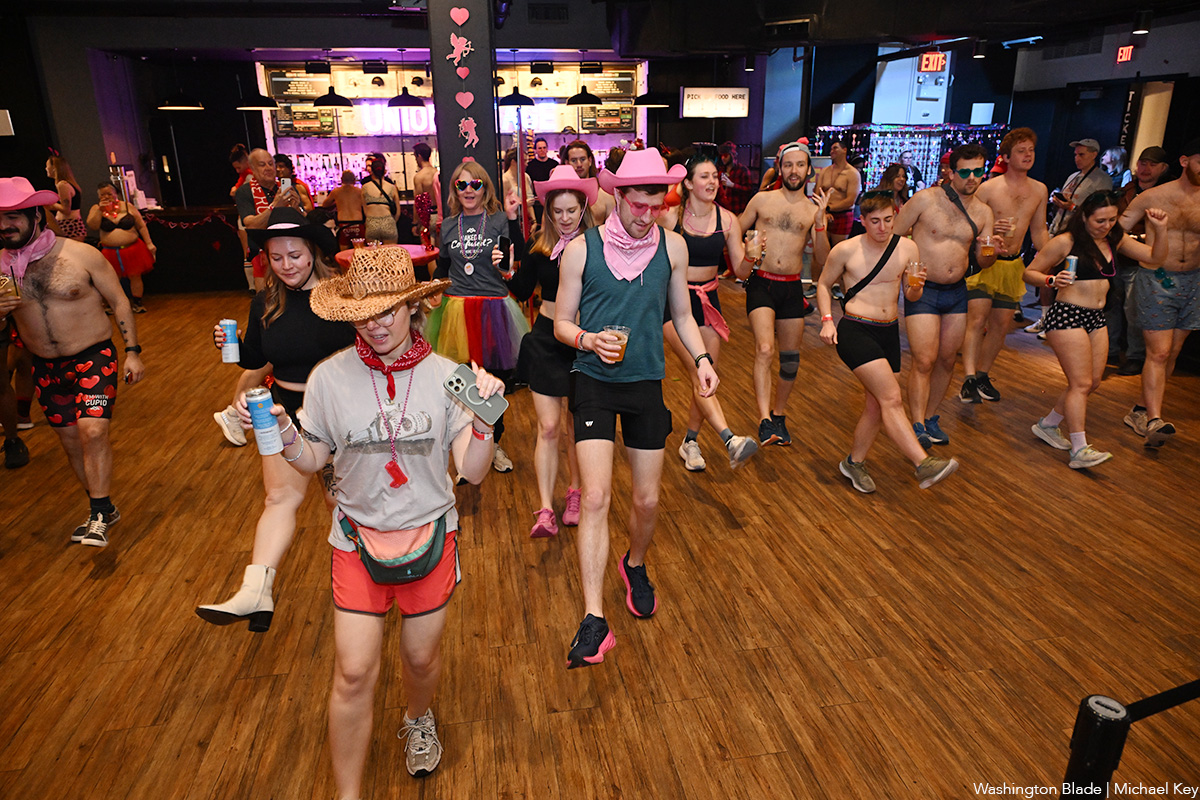
Cupid’s Undie Run, an annual fundraiser for neurofibromatosis (NF) research, was held at Union Stage and at The Wharf DC on Saturday, Feb. 21.
(Washington Blade photos by Michael Key)
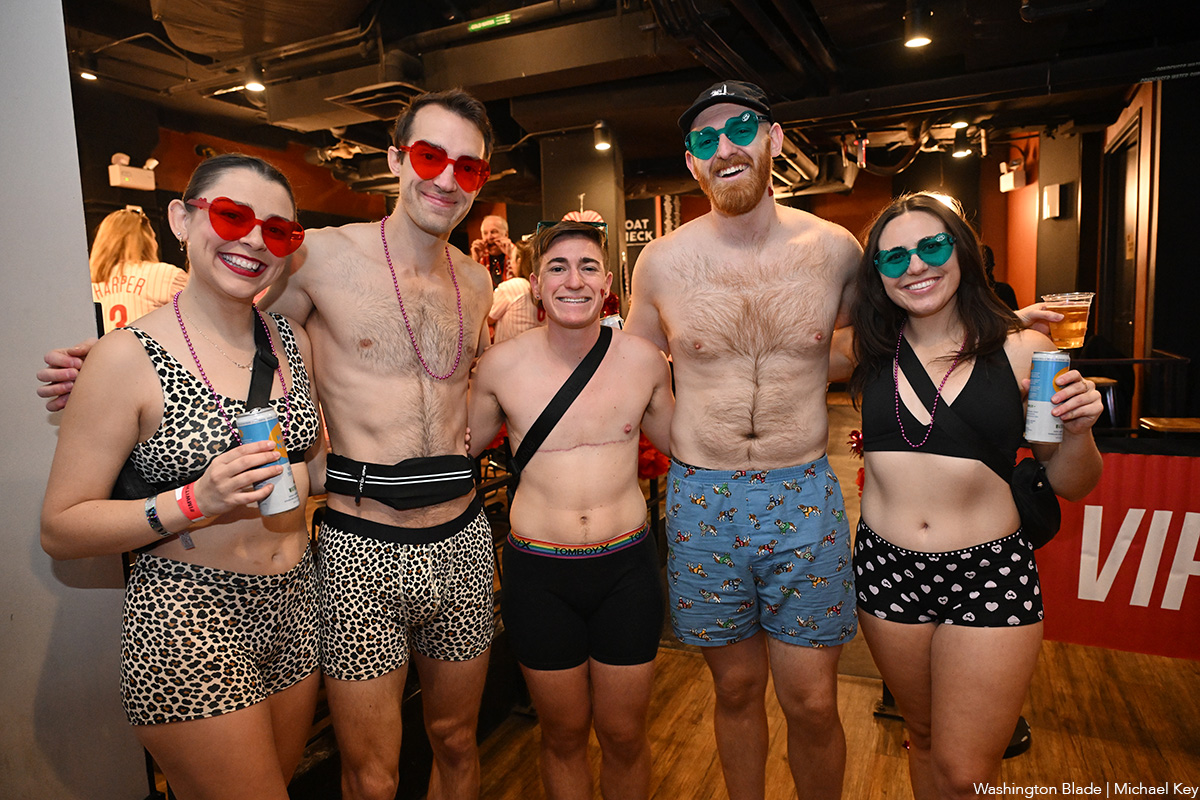
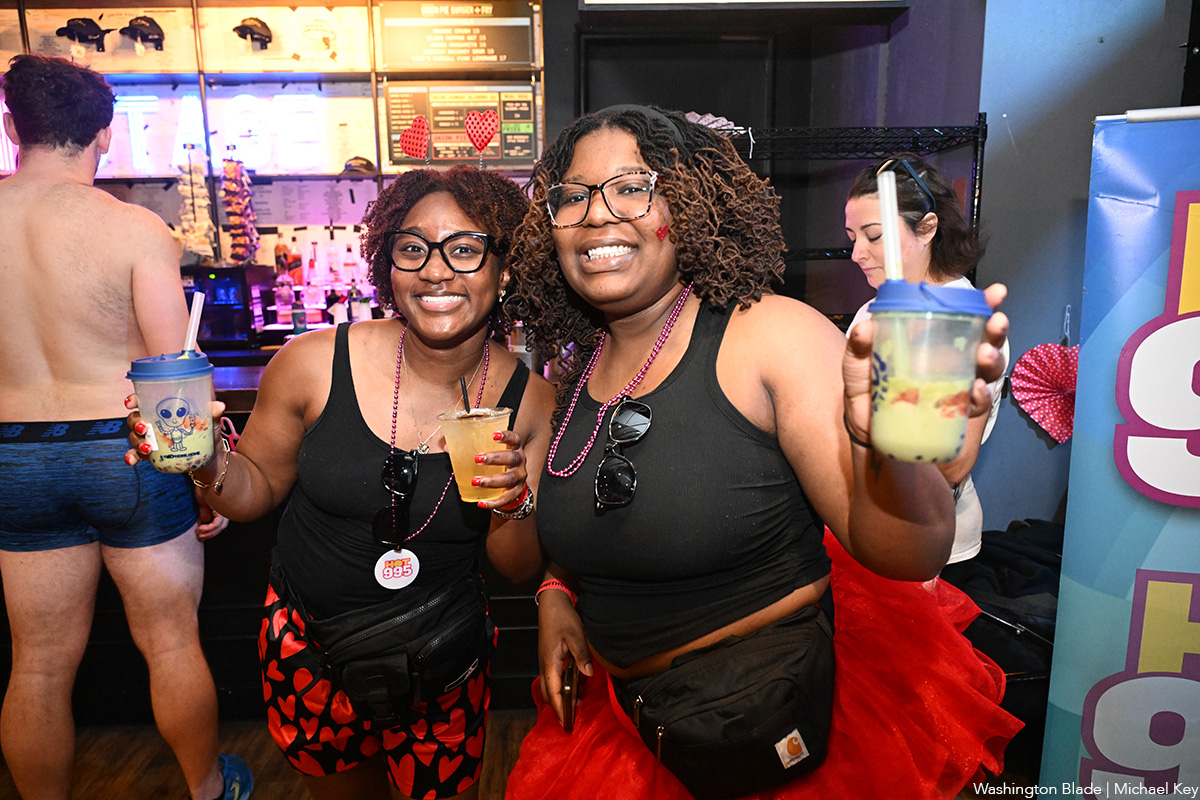
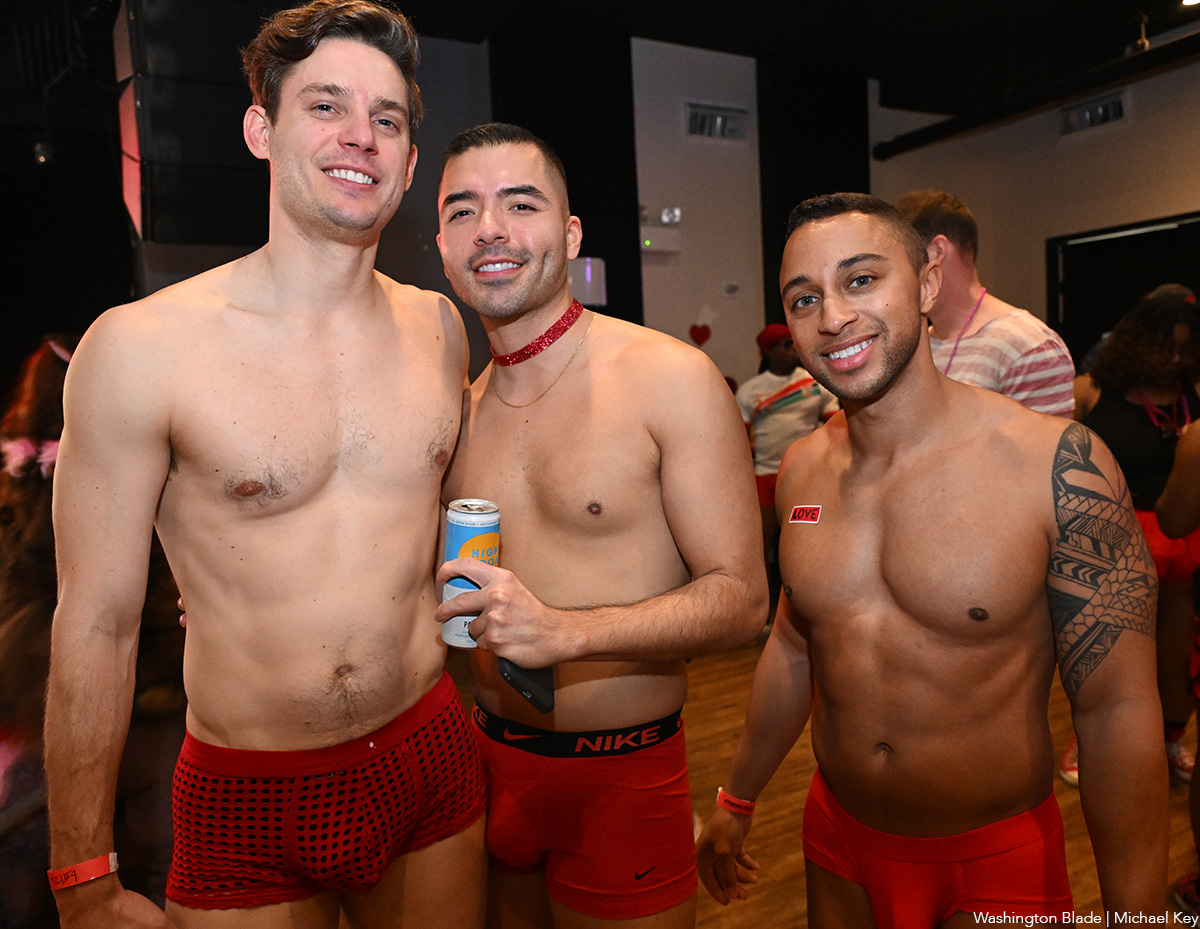
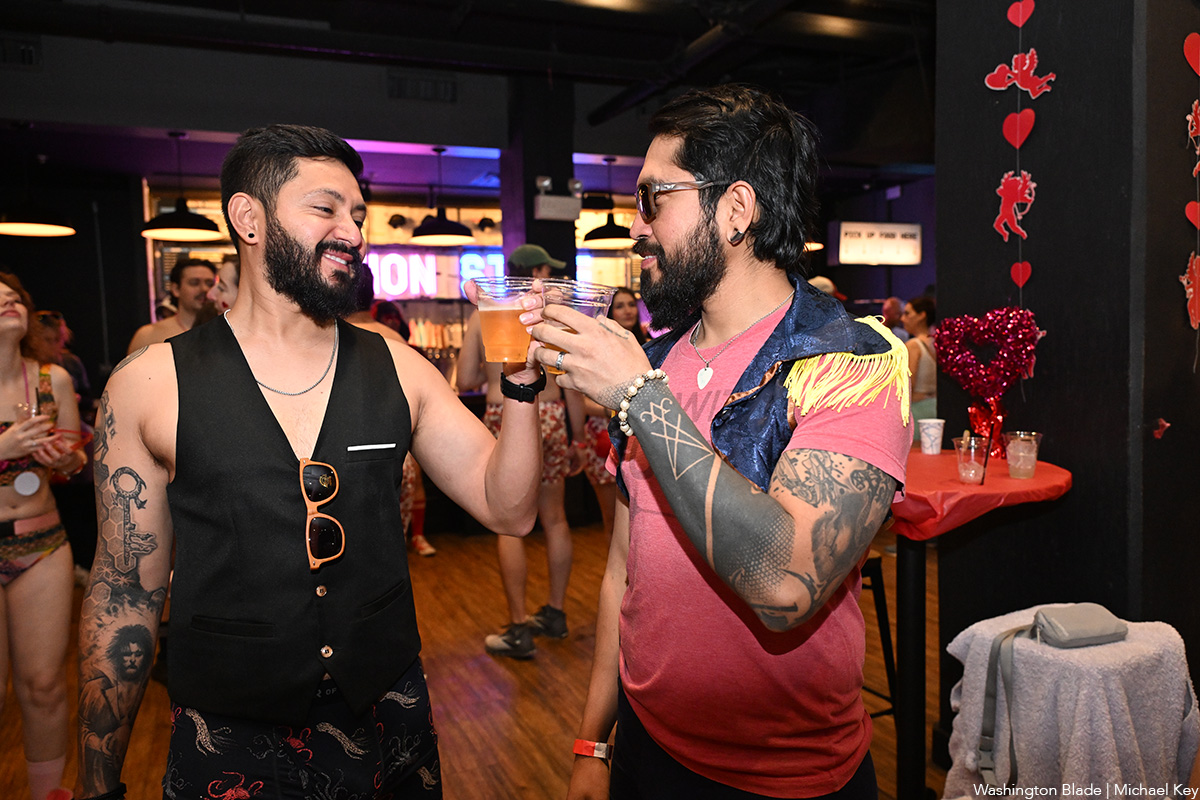
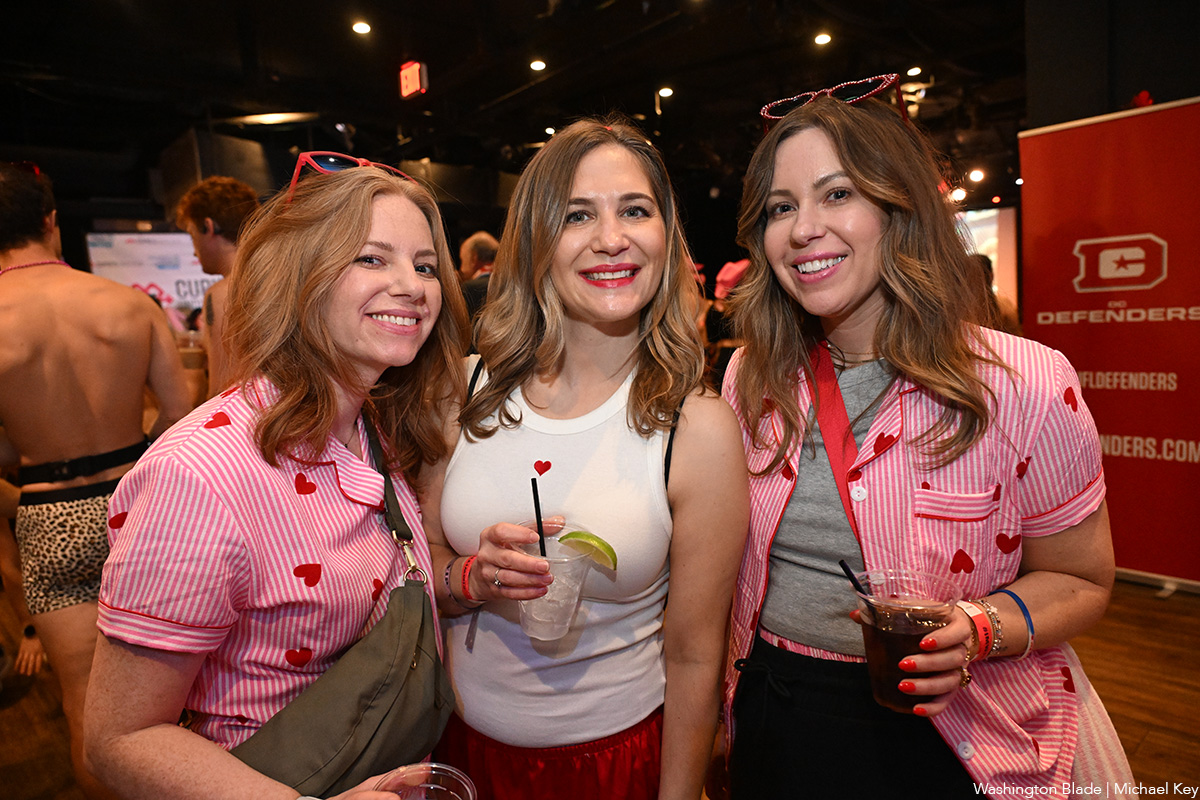
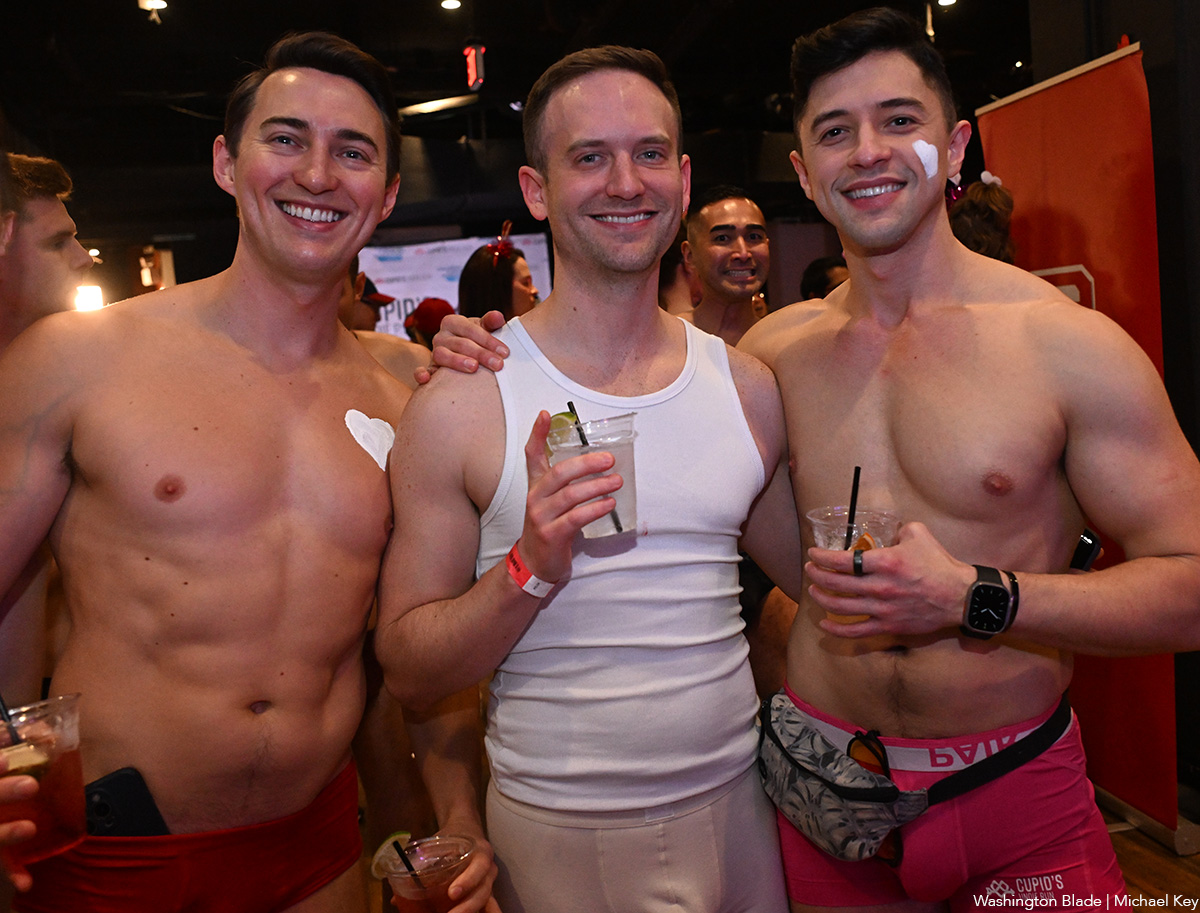
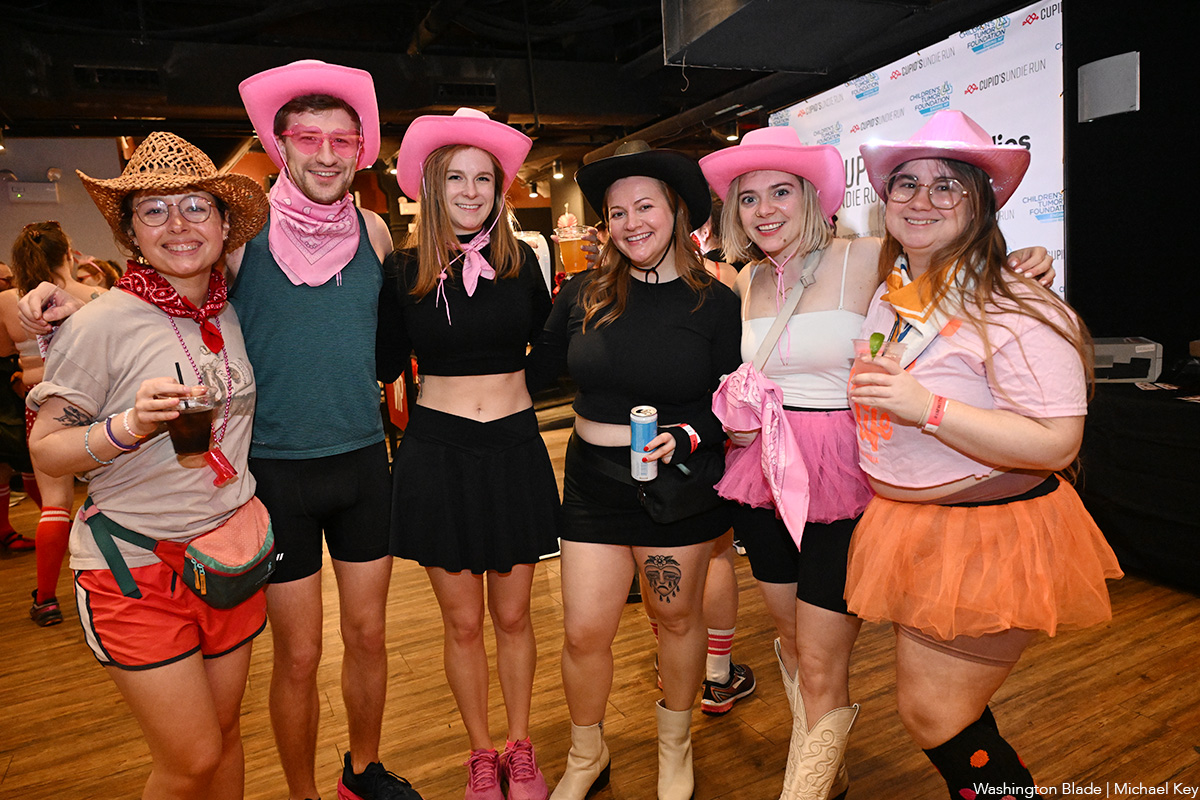
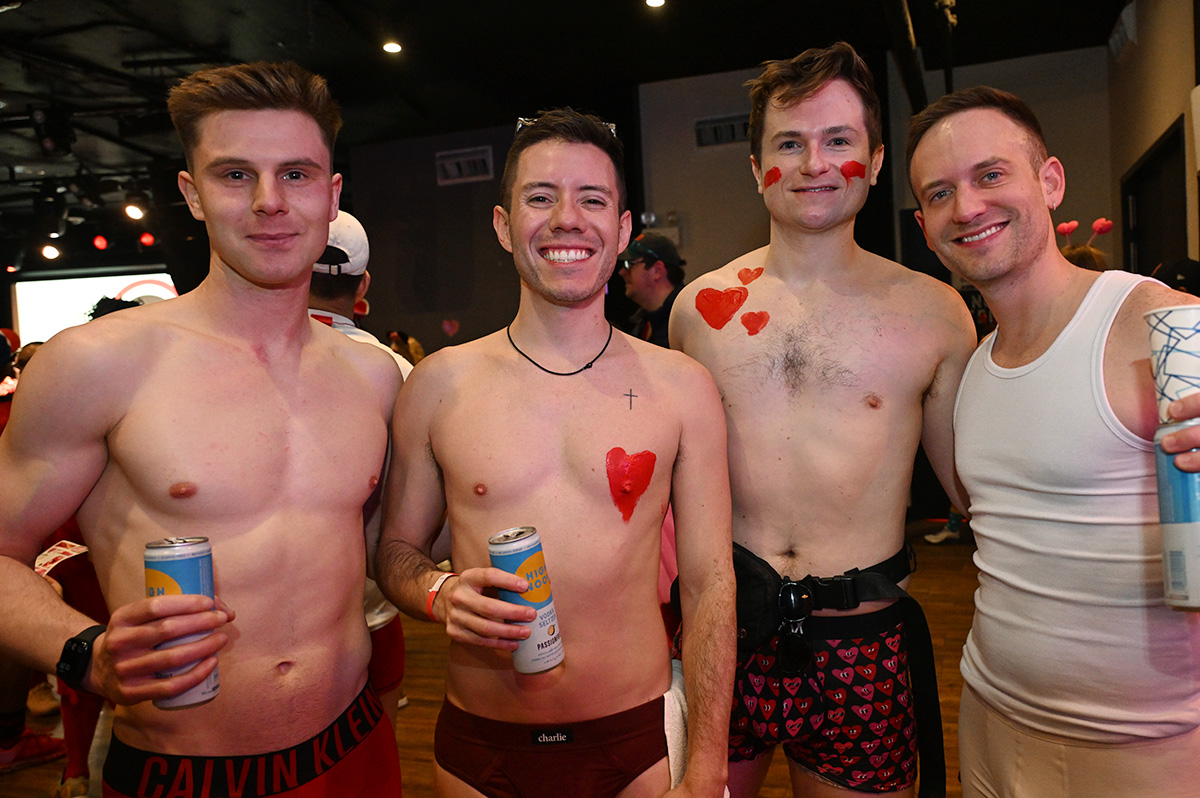
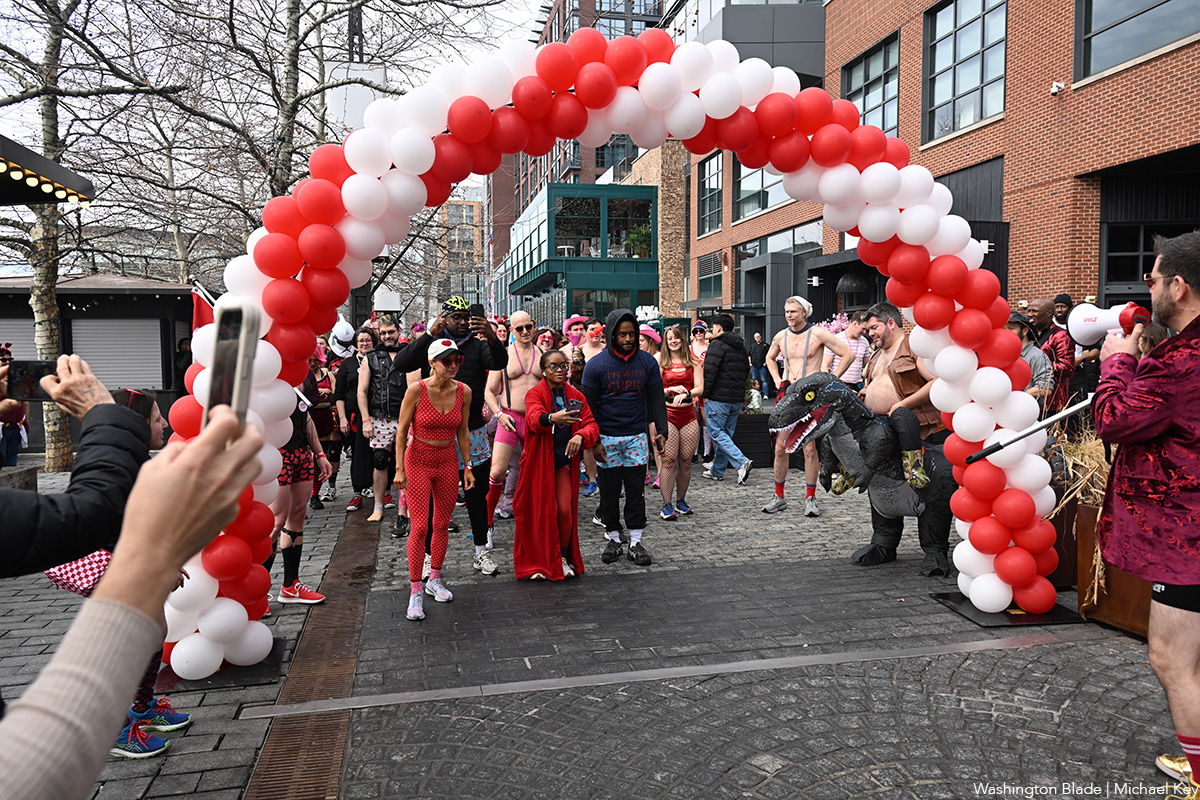
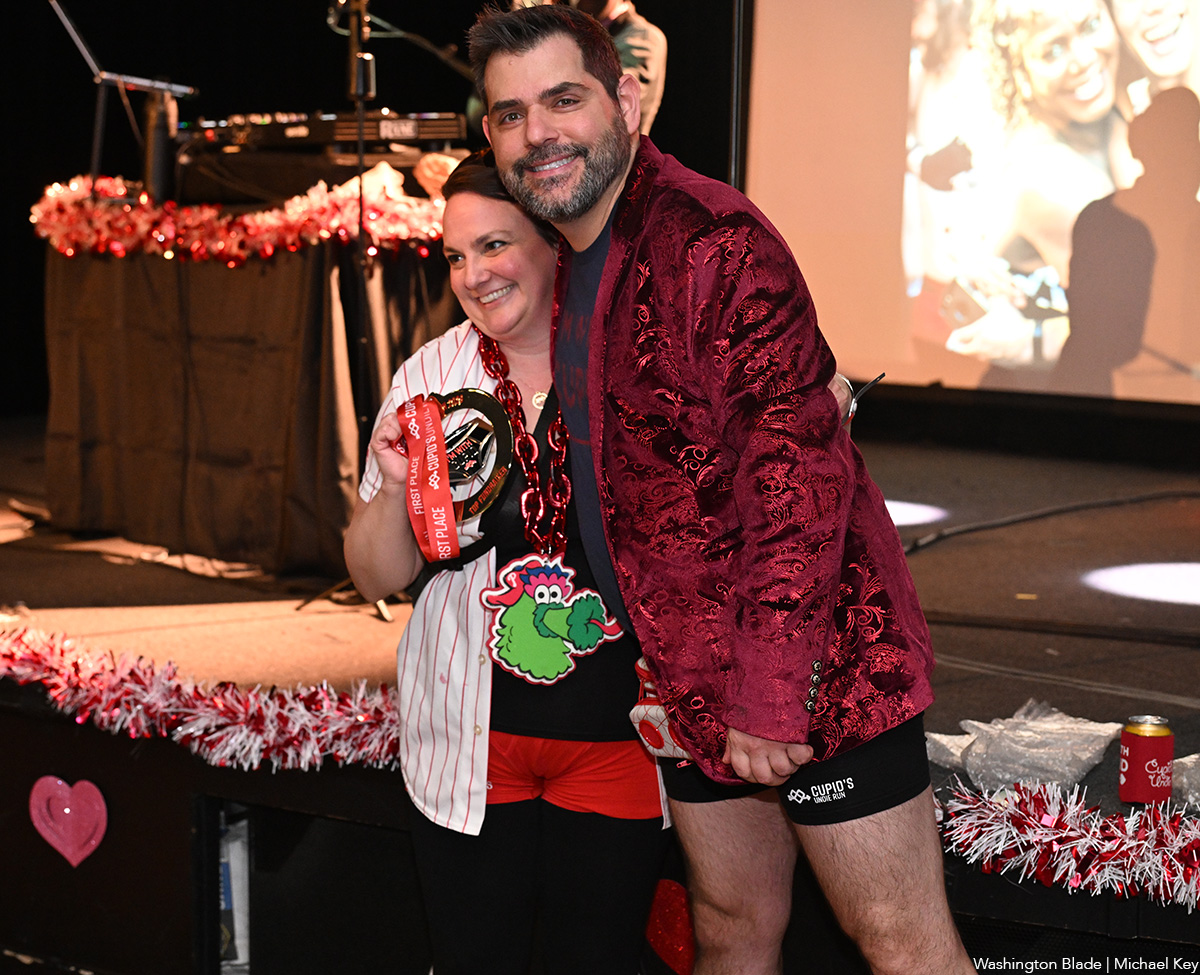
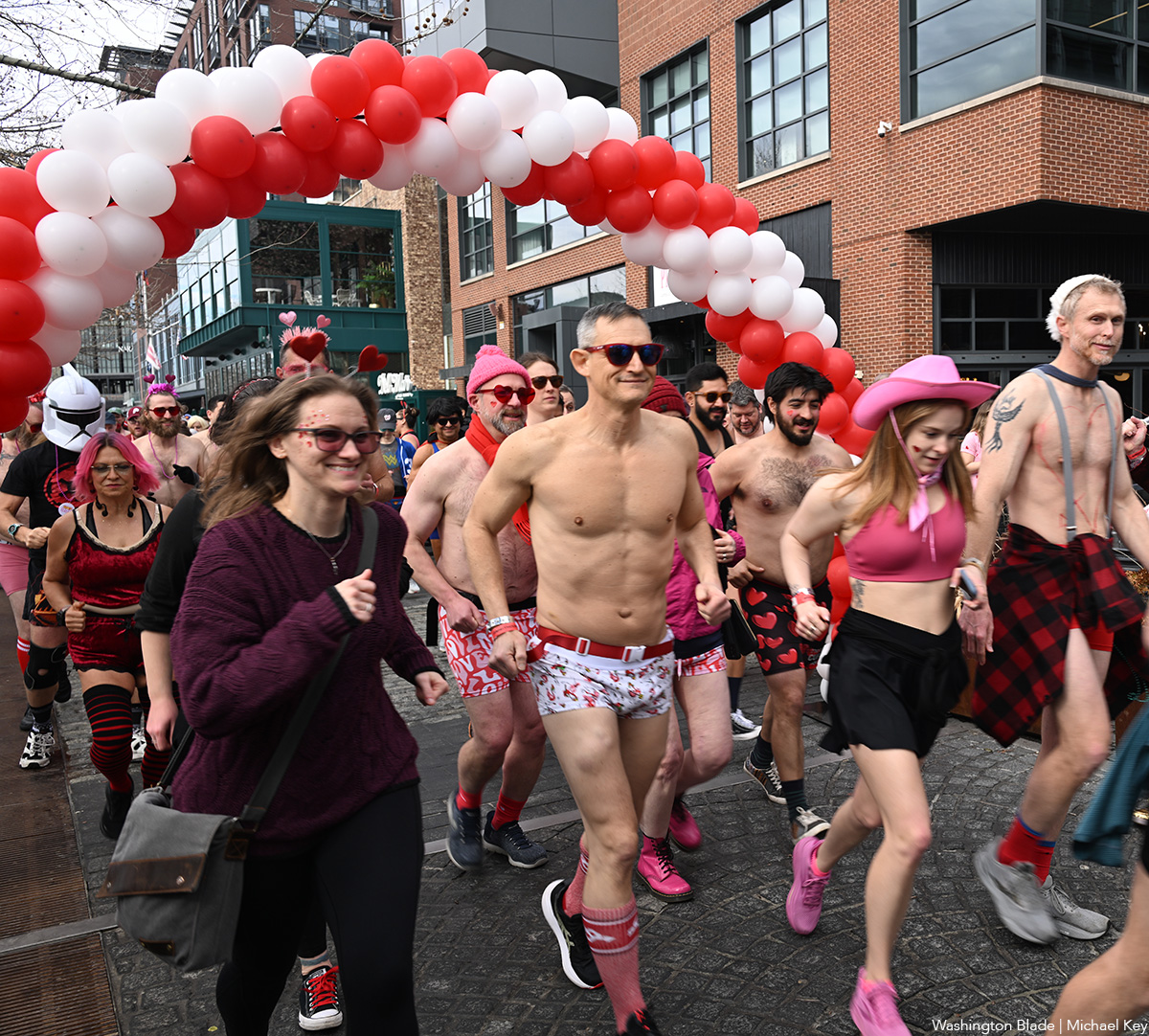
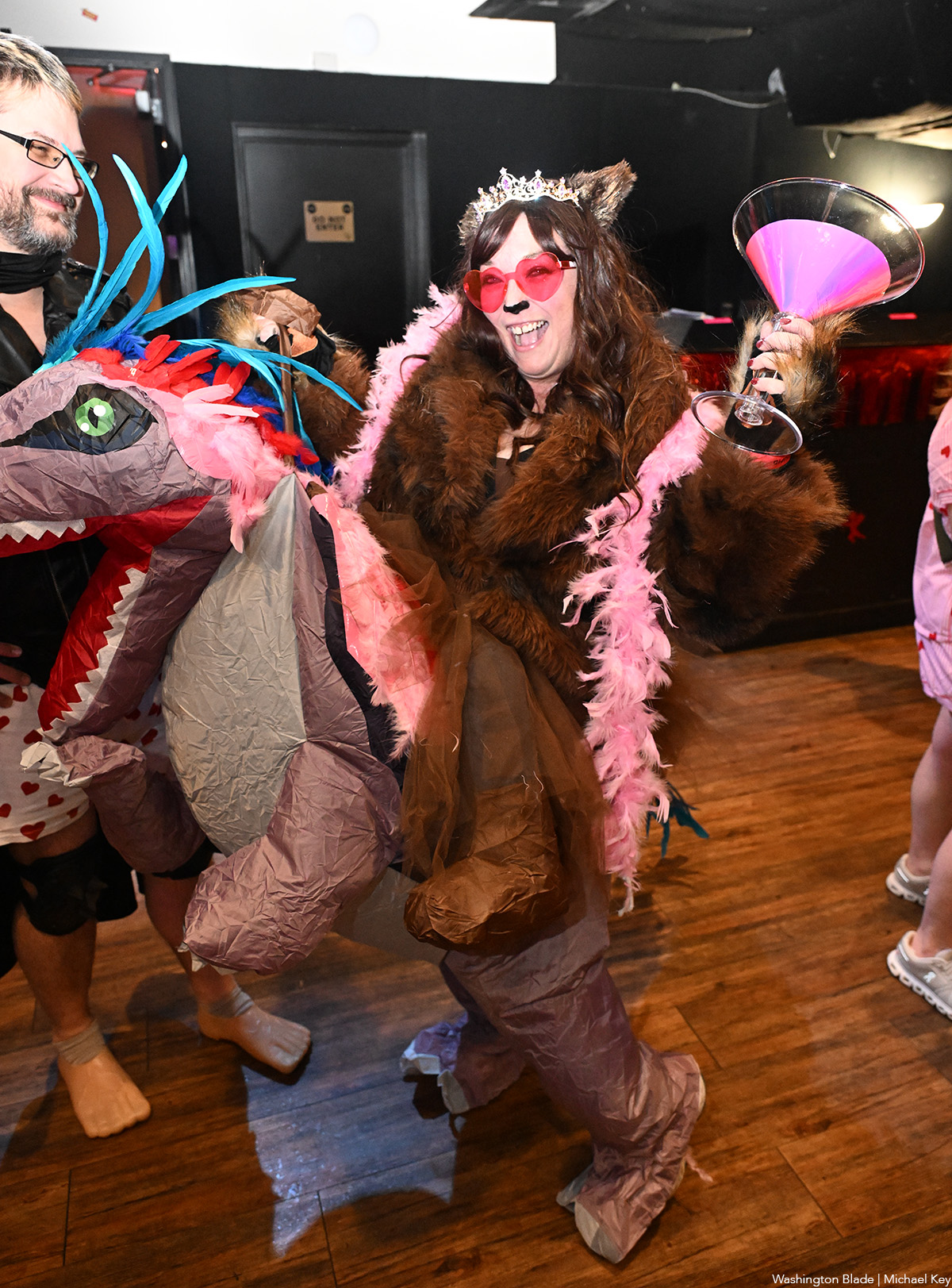
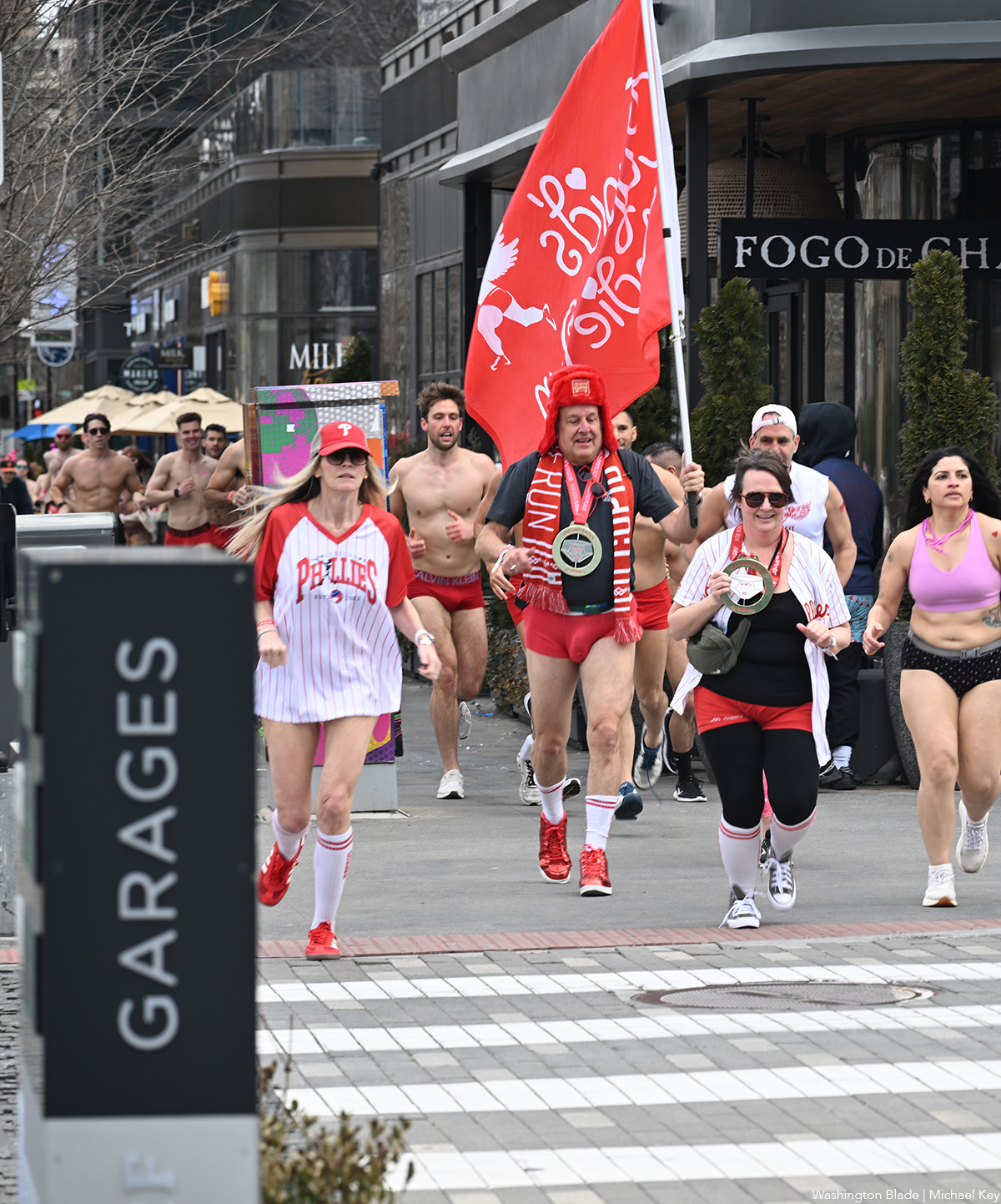

Sweat DC is officially expanding to Shaw, opening a new location at 1818 7th St., N.W., on Saturday, March 28 — and they’re kicking things off with a high-energy, community-first launch event.
To celebrate, Sweat DC is hosting Sweat Fest, a free community workout and social on Saturday, March 14, at 10 a.m. at the historic Howard Theatre. The event features a group fitness class, live DJ, local food and wellness partners, and a mission-driven partnership with the Open Goal Project, which works to expand access to youth soccer for players from marginalized communities.
For more details, visit Sweat DC’s website and reserve a spot on Eventbrite.
-

 Massachusetts5 days ago
Massachusetts5 days agoEXCLUSIVE: Markey says transgender rights fight is ‘next frontier’
-

 Opinions4 days ago
Opinions4 days agoGay Treasury Secretary’s silence on LGBTQ issues shows he is scum
-

 New York5 days ago
New York5 days agoLawsuit to restore Stonewall Pride flag filed
-

 U.S. Military/Pentagon4 days ago
U.S. Military/Pentagon4 days ago4th Circuit rules against discharged service members with HIV




















